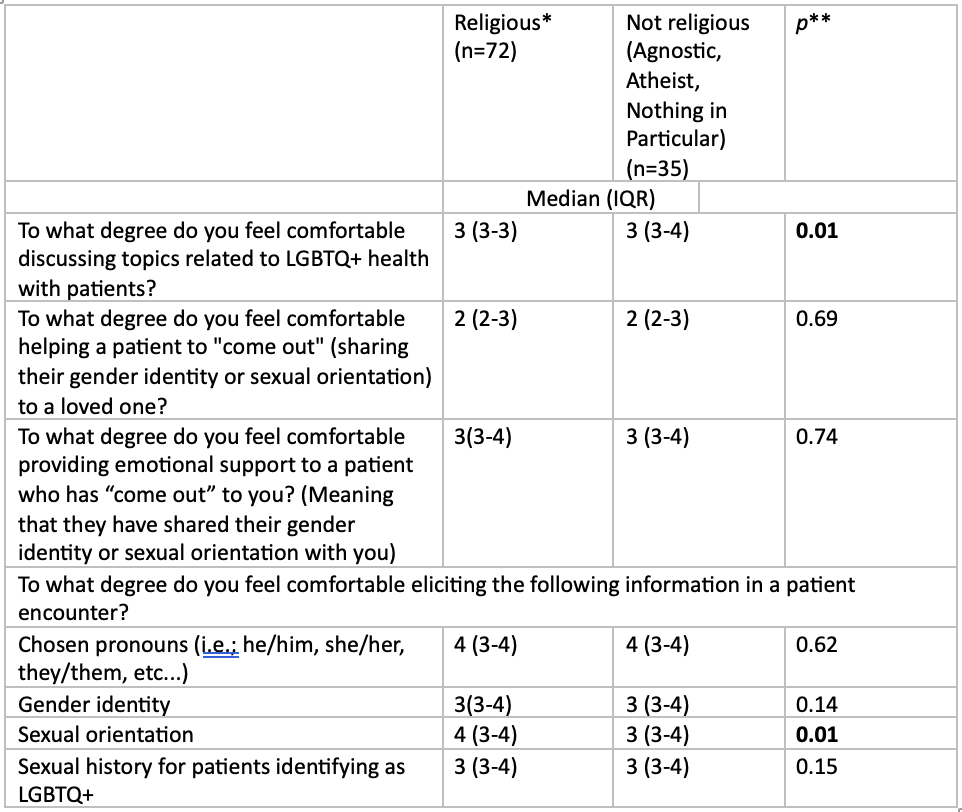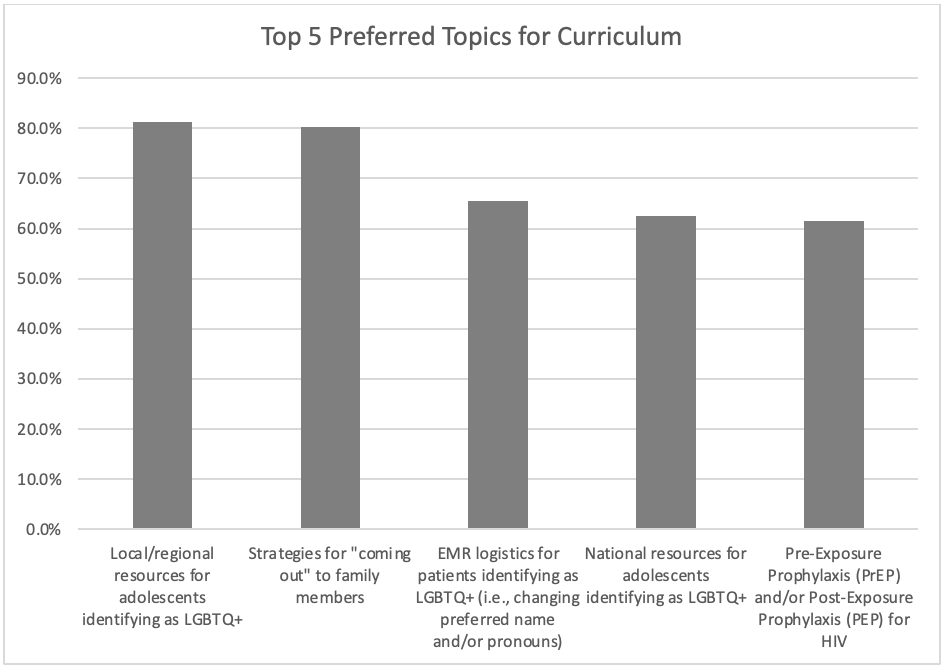Medical Education 6: Health Equity
Session: Medical Education 6: Health Equity
452 - Understanding LGBTQ+ Health Education Needs in Pediatric Residency: A Targeted Assessment
Saturday, April 26, 2025
2:30pm - 4:45pm HST
Publication Number: 452.6546
Michael Petrus-Jones, Baylor College of Medicine, Houston, TX, United States; Shelley Kumar, Baylor College of Medicine, Houston, TX, United States; Aditi Gupta, Baylor College of Medicine, Houston, TX, United States

Michael Petrus-Jones, DO, MPH, MS (he/him/his)
Fellow
Baylor College of Medicine
Houston, Texas, United States
Presenting Author(s)
Background: Pediatricians play a pivotal role in addressing the unique health needs of LGBTQ+ youth, especially with nationwide attacks on LGBTQ+ healthcare. Despite this, the breadth and depth of LGBTQ+ curricula in pediatric Graduate Medical Education (GME) are lacking. Standardization across institutions is poor and published curricula is not feasibly replicated. Foundational curriculum that can be implemented cross-institutionally is needed.
Objective: Evaluate baseline LGBTQ+ health knowledge, comfort, and attitudes of residents at a large Texas pediatrics residency program and identify gaps and preferences for topics of new curriculum.
Design/Methods: A cross-sectional anonymous survey of pediatric residents at a children’s hospital in Texas was distributed via email in August 2024. The survey was synthesized from published surveys, expert opinion, and piloted prior to use. Data was analyzed using Wilcoxon rank sum tests and 2-sided t-tests.
Results: 114 of 180 residents responded (63%). Most were women (80%), in PGY1/PGY2 (75%), with 85% aged 21-30. Demographics, summary statistics are in Table 1. While 82% received formal LGBTQ+ health training in medical school, and 80% felt comfortable discussing LGBTQ+ topics, only 38% were comfortable assisting a patient in "coming out" to a loved one. At least half of respondents reported being "not at all knowledgeable" about support groups for patients (50%) or families (50%), targeted mental healthcare (50%), local Houston resources (50%), Texas-specific resources (63%), or EMR logistics for LGBTQ+ patients (63%). Comfort discussing LGBTQ+ health topics was higher in non-religious respondents compared to religious ones (Median (IQR): 3 [3-4] vs 3 [3-3]; p=0.01) (Table 2). Nearly all respondents (99%) agreed or strongly agreed that providing safe spaces and advocating for LGBTQ+ patients (95%) is important, with 94% stating that pediatricians need more LGBTQ+ specific training. Figure 1 shows the top five topics respondents were interested in learning more about.
Conclusion(s): The lack of significant differences in comfort or knowledge across training levels and demographics suggests LGBTQ+ health education is a priority for all pediatricians, highlighting a universal need for standardized training. The gaps in knowledge, particularly around support services and resources, reflect a need to enhance education on LGBTQ+ topics, despite Texas' sociopolitical challenges. These findings will guide the development of a foundational curriculum that can be implemented across institutions.
Demographics and Summary Statistics
.png)
Comfort with Various LGBTQ+ Health Topics by Religious Preference
 For comfort items: 1= Very uncomfortable; 4= Very comfortable; IQR= Interquartile Range;
For comfort items: 1= Very uncomfortable; 4= Very comfortable; IQR= Interquartile Range;*Religious categories included Buddhist, Hindu, Jewish, Mormon, Muslim, Orthodox such as Greek or Russian Orthodox, Protestant, Roman Catholic, Something else
**p-values calculated using Wilcoxon rank sum test.
Top 5 Preferred Topics for Curriculum

Demographics and Summary Statistics
.png)
Comfort with Various LGBTQ+ Health Topics by Religious Preference
 For comfort items: 1= Very uncomfortable; 4= Very comfortable; IQR= Interquartile Range;
For comfort items: 1= Very uncomfortable; 4= Very comfortable; IQR= Interquartile Range;*Religious categories included Buddhist, Hindu, Jewish, Mormon, Muslim, Orthodox such as Greek or Russian Orthodox, Protestant, Roman Catholic, Something else
**p-values calculated using Wilcoxon rank sum test.
Top 5 Preferred Topics for Curriculum


